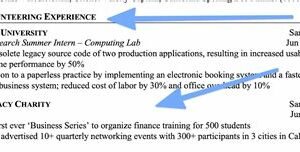Table of Contents
Volunteering work is a selfless act of dedicating one’s time and skills to help others in need. It allows individuals to make a positive impact on society, gain valuable experience, and develop personal growth. Engaging in volunteering work can create lasting connections, foster empathy, and contribute to building a more compassionate and inclusive community.
Volunteering work is not only a fulfilling and rewarding experience, but it also plays a crucial role in making a positive impact on individuals, communities, and society as a whole. Transitioning from being a passive observer to an active participant in the betterment of the world around us can be a transformative journey. By dedicating our time and skills to help others, we not only contribute to causes we deeply care about but also gain valuable experiences and develop essential professional and personal skills. Whether it’s working with marginalized communities, protecting the environment, or supporting education initiatives, volunteering provides a unique opportunity to make a difference while growing as individuals.
The Importance of Volunteering Work
Volunteering work is an essential aspect of society that often goes unnoticed and underappreciated. It involves individuals dedicating their time and skills to contribute to various causes, organizations, or communities without expecting any financial compensation in return. The impact of volunteering work is far-reaching, benefiting both the volunteers themselves and the communities they serve. In this article, we will explore the significance of volunteering work and the ways in which it positively affects individuals and society as a whole.
Personal Development and Growth
One of the most significant aspects of volunteering work is its potential to promote personal development and growth. When individuals engage in volunteer activities, they are exposed to new experiences, challenges, and perspectives. This exposure expands their knowledge, enhances their skills, and helps them develop valuable qualities such as empathy, compassion, and resilience. Moreover, volunteering offers opportunities for individuals to discover their passions and interests, leading to a sense of purpose and fulfillment in their lives.
Building Stronger Communities
Volunteering work plays a crucial role in building stronger communities. By actively participating in community-based initiatives, volunteers contribute to the overall well-being and progress of their neighborhoods. They assist in creating safer environments, promoting social cohesion, and fostering a sense of belonging among community members. Additionally, volunteers often provide vital services that may not be readily available or accessible to certain groups, thereby addressing societal gaps and inequalities.
Addressing Social Issues
Volunteering work acts as a catalyst for addressing various social issues. Whether it is poverty, homelessness, environmental degradation, or educational disparities, volunteers are at the forefront of tackling these challenges. They dedicate their time and expertise to support organizations and initiatives that strive to create positive change. Through volunteering, individuals contribute to the collective effort of making the world a fairer and more equitable place for all.
Enhancing Professional Skills
Engaging in volunteering work can significantly enhance an individual’s professional skills and employability. Many volunteer opportunities involve tasks that require collaboration, communication, problem-solving, and leadership abilities. By actively participating in such activities, volunteers develop and refine these skills, making them more attractive to potential employers. Volunteering also provides valuable networking opportunities, enabling individuals to connect with professionals in their field of interest and potentially open doors to future career prospects.
Fostering Social Connections
Volunteering work offers a unique platform for individuals to foster social connections and build meaningful relationships. By working alongside like-minded individuals who share similar values and causes, volunteers develop a sense of camaraderie and belonging. These connections extend beyond the volunteering experience, creating a support system and expanding one’s social circle. Furthermore, volunteering can bridge gaps between different generations, cultures, and backgrounds, promoting inclusivity and understanding.
Promoting Mental Well-being
Volunteering work has been linked to improved mental well-being and overall happiness. The act of giving back, helping others, and being part of something larger than oneself can have a profound positive impact on an individual’s mental health. It provides a sense of purpose, boosts self-esteem, and reduces stress and anxiety. Additionally, volunteering often exposes individuals to diverse perspectives and challenges their own assumptions, leading to personal growth and increased empathy, which are essential factors for maintaining good mental well-being.
Inspiring Future Generations
Volunteering work serves as an inspiration to future generations. When young people witness individuals dedicating their time and efforts to make a positive impact on society, they are more likely to be motivated to do the same. By volunteering, individuals become role models, encouraging others to get involved in community service and fostering a culture of active citizenship. This inspiration creates a ripple effect, leading to a stronger and more compassionate society in the long run.
Creating a Sense of Gratitude
Volunteering work cultivates a sense of gratitude within individuals. By engaging in activities that help others, volunteers gain a deeper appreciation for the privileges and opportunities they have in their own lives. This gratitude leads to increased empathy and a desire to give back to society further. By recognizing the impact they can make through volunteering, individuals develop a greater understanding of the interconnectedness of humanity and the importance of collective action.
Making a Difference
Ultimately, volunteering work allows individuals to make a tangible difference in the world. It offers an opportunity to contribute positively to causes and issues that matter to them personally. Whether it is supporting vulnerable populations, conserving the environment, or advocating for social justice, volunteers play a vital role in effecting change. Each act of volunteering, no matter how small, can have a profound impact on someone’s life or the community as a whole. By making a difference through volunteering, individuals become agents of positive transformation.
Conclusion
Volunteering work is a powerful force that shapes individuals, communities, and society at large. Its significance lies in promoting personal development, building stronger communities, addressing social issues, enhancing professional skills, fostering social connections, promoting mental well-being, inspiring future generations, creating a sense of gratitude, and ultimately making a difference. It is essential to recognize and appreciate the invaluable contributions of volunteers and support initiatives that encourage and facilitate volunteering. By collectively embracing the power of volunteering, we can create a brighter and more compassionate world for all.
The Importance of Volunteering Work
Volunteering work plays a crucial role in society by helping to address critical social, economic, and environmental issues. It provides an opportunity for individuals to give back to their communities while contributing their skills and expertise. Moreover, volunteering work helps foster a sense of empathy and compassion among individuals, ultimately building stronger and more cohesive societies.
Skills Development through Volunteering Work
Engaging in volunteering work allows individuals to develop and enhance a wide range of skills. From leadership and time management to communication and problem-solving, volunteers have the chance to refine these competencies while making a positive impact. Additionally, volunteering can provide a platform for individuals to explore their interests and potentially discover new talents they were previously unaware of.
Volunteering as a Networking Opportunity
Volunteering work also serves as a valuable networking opportunity, connecting individuals with like-minded people from diverse backgrounds and professions. These connections can lead to career opportunities, mentorships, or collaborative projects in the future. Volunteering often allows individuals to expand their social and professional circles, enabling them to build strong relationships based on a shared passion for making a difference.
The Psychological Benefits of Volunteering
Engaging in volunteering work has been linked to improved mental health and overall well-being. It provides a sense of purpose and fulfillment, which can combat feelings of loneliness and depression. Volunteering also offers a unique form of stress relief and promotes a positive outlook on life through the act of helping others.
Volunteering for Personal Growth
Volunteering work offers individuals the chance to step out of their comfort zones, face challenges, and grow personally. It encourages the development of important character traits such as resilience, empathy, and adaptability. By embracing new experiences and pushing boundaries, volunteers can become more self-aware and gain a deeper understanding of themselves.
Volunteering for Social Impact
Volunteering work has the power to address social issues at various levels, from local communities to global causes. It gives individuals the opportunity to contribute to meaningful initiatives and actively participate in positive social change. By working collectively towards a common goal, volunteers can have a lasting impact on the lives of others and leave a positive legacy.
Volunteering for Professional Development
Volunteering can serve as a stepping stone for professional growth and career advancement. It provides individuals with the chance to develop new skills, gain practical experience, and broaden their knowledge within a particular field. In addition, volunteering work demonstrates dedication, commitment, and a willingness to go the extra mile, qualities highly valued by potential employers.
Volunteering as a Vehicle for Cultural Exchange
Engaging in volunteering work often entails interacting with individuals from different cultures, backgrounds, and perspectives. This promotes tolerance, understanding, and appreciation for diversity. Volunteering can act as a bridge between communities, fostering cultural exchange, and enabling greater social cohesion in an increasingly interconnected world.
Volunteering Work is an invaluable experience that allows individuals to contribute to their communities and make a positive impact on the lives of others. It is an opportunity to dedicate one’s time, skills, and resources towards a cause or organization that aligns with their personal values and passions. In this point of view, we will explore the significance of volunteering work and emphasize the importance of a professional voice and tone when discussing this topic.
1. Volunteering as a means of personal and professional growth:
- Volunteering offers individuals the chance to develop new skills and expand their knowledge in various domains.
- It provides an avenue for personal growth, allowing volunteers to gain self-confidence, enhance their communication and leadership abilities, and foster a sense of empathy and understanding towards others.
- Professionally, volunteering can be a stepping stone to acquiring relevant experience, building a network of contacts, and exploring potential career paths.
2. Contributing to the community:
- Volunteering work plays a vital role in addressing social issues and meeting the needs of vulnerable populations.
- By volunteering, individuals directly impact their communities by offering their time, expertise, and resources to support those in need.
- Volunteers act as catalysts for change, working towards creating a more inclusive, equitable, and compassionate society.
3. Creating a ripple effect of positivity:
- The act of volunteering often inspires others to get involved, creating a ripple effect of positivity and encouraging collective action.
- When individuals witness the dedication and commitment of volunteers, they are motivated to contribute in their own ways, leading to a stronger sense of community engagement.
- Volunteering work fosters a culture of giving back, encouraging individuals to prioritize the needs of others and work towards the greater good.
4. Enhancing social and professional networks:
- Volunteering allows individuals to connect with like-minded people who share similar values and interests.
- Building relationships within the volunteering community can lead to new friendships, mentorship opportunities, and potential collaborations.
- From a professional standpoint, these networks can provide valuable connections and references, opening doors to future career opportunities.
5. Promoting a professional voice and tone:
- When discussing volunteering work, it is crucial to maintain a professional voice and tone in order to convey the seriousness and significance of the topic.
- Using appropriate language and avoiding slang or informal expressions helps to establish credibility and respect for the subject matter.
- A professional voice and tone also demonstrate a level of professionalism, reflecting the dedication and commitment required in volunteering work.
In conclusion, volunteering work provides individuals with an opportunity to grow personally and professionally, contribute to their communities, and create a ripple effect of positivity. By maintaining a professional voice and tone when discussing this topic, we emphasize the importance and value of volunteering work in society.
Thank you for taking the time to visit our blog and learn more about the incredible world of volunteering work. We hope that the information we have provided has inspired you to consider becoming a volunteer yourself. Volunteering is not only a selfless act of giving back to the community, but it also offers numerous personal and professional benefits. In this closing message, we would like to highlight some key points from our articles and encourage you to take the first step towards making a difference in the world.
Firstly, volunteering provides an invaluable opportunity to make a positive impact on the lives of others. Whether it’s working with underprivileged children, supporting elderly individuals, or contributing to environmental conservation efforts, your time and effort can truly make a difference. By dedicating your skills and energy to those in need, you can bring about positive change and help build a stronger, more compassionate society.
Secondly, volunteering offers a range of personal benefits. It allows you to step outside of your comfort zone, gain new perspectives, and develop a greater understanding of different cultures and communities. Volunteering also provides a sense of fulfillment and purpose, boosting your self-esteem and overall well-being. Additionally, by engaging in meaningful activities, you can develop valuable skills such as teamwork, communication, and problem-solving, which are highly sought after in the professional world.
Lastly, volunteering opens up doors for new opportunities and connections. Through your volunteer work, you will meet like-minded individuals who share your passion for making a difference. These connections can lead to lifelong friendships, mentorship, and even potential job opportunities. Many organizations and employers value individuals with a strong commitment to social responsibility and community involvement, making volunteering an excellent way to enhance your professional profile.
As you can see, the benefits of volunteering work are vast and far-reaching. So, why not take that first step and explore the various opportunities available in your community? Whether you choose to dedicate a few hours a week or embark on a long-term commitment, your contribution will undoubtedly create a ripple effect of positive change. Start today, and make a difference in the lives of others while enriching your own life in ways you never imagined.
Thank you once again for visiting our blog. We hope that you continue to explore the world of volunteering and find a cause that resonates with you. Together, we can create a better and more compassionate world for everyone.
.
1. What are the benefits of volunteering work?
- Volunteering work allows you to make a positive impact on others and your community.
- It provides an opportunity to develop new skills or enhance existing ones.
- You can gain valuable work experience and boost your resume.
- Volunteering can help improve your social and communication skills.
- It allows you to meet new people and make meaningful connections.
- Volunteering work can improve your mental and physical well-being.
- It offers a chance to explore new interests and passions.
- You can gain a sense of fulfillment and personal satisfaction.
2. How can I find volunteer opportunities near me?
- Research local non-profit organizations, charities, or community centers in your area.
- Check their websites or contact them directly to inquire about volunteer opportunities.
- Utilize online platforms and databases that connect volunteers with organizations.
- Attend local volunteer fairs or community events where organizations showcase their volunteering programs.
- Reach out to friends, family, or colleagues who may have knowledge of available volunteer opportunities.
3. Can volunteering work lead to a paid job?
Yes, volunteering work can potentially lead to paid job opportunities. By volunteering, you can:
- Gain relevant work experience and develop transferable skills.
- Network and make connections with professionals in your field of interest.
- Showcase your dedication, commitment, and work ethic to potential employers.
- Receive positive references or recommendations from supervisors or colleagues.
- Volunteering can serve as a stepping stone towards paid employment, especially if you demonstrate your skills and passion during your volunteering experience.
4. How much time do I need to commit to volunteering work?
The time commitment for volunteering work varies depending on the organization and the role you choose. It can range from a few hours per week to full-time positions. Some volunteer opportunities may have specific time requirements, while others offer flexibility for volunteers to choose their own schedule. It’s important to discuss and clarify the time commitment with the organization before committing to a volunteering role.
5. Are there age restrictions for volunteering work?
Age restrictions for volunteering work can vary depending on the organization and the nature of the tasks involved. While some organizations may have minimum age requirements, there are usually volunteering opportunities available for people of all age groups. Youth volunteer programs often exist to engage younger individuals, while senior citizens may find specific volunteer roles tailored to their interests and abilities. It’s advisable to inquire directly with the organization to know their age requirements and available opportunities.






